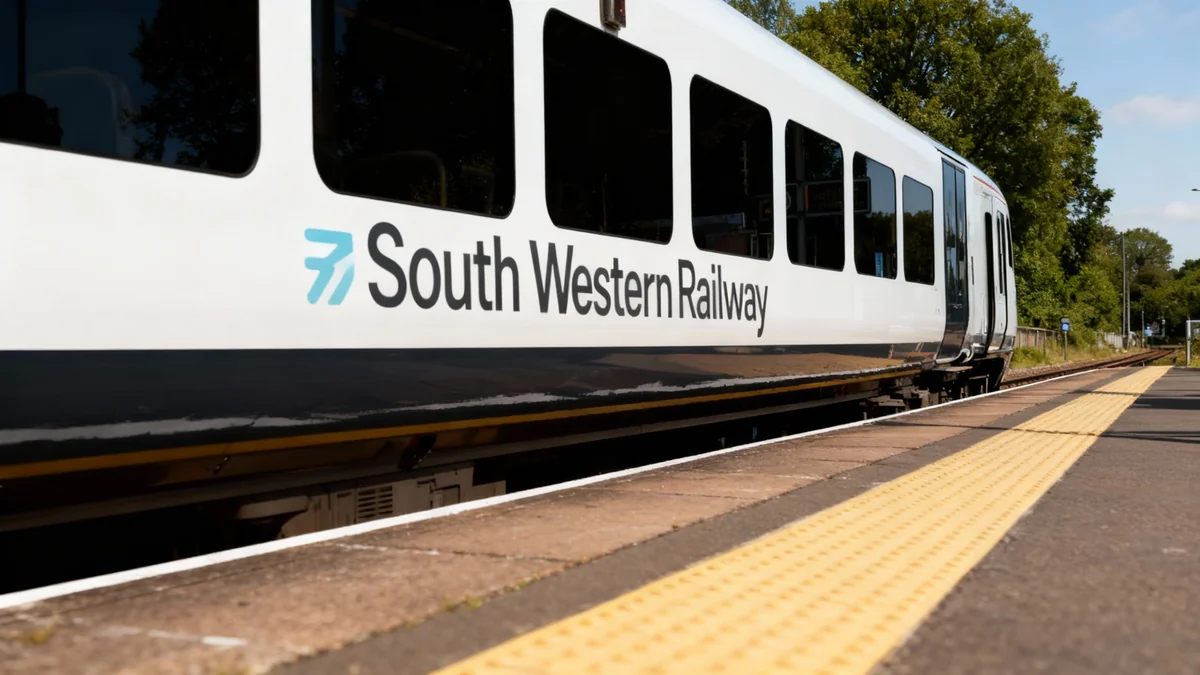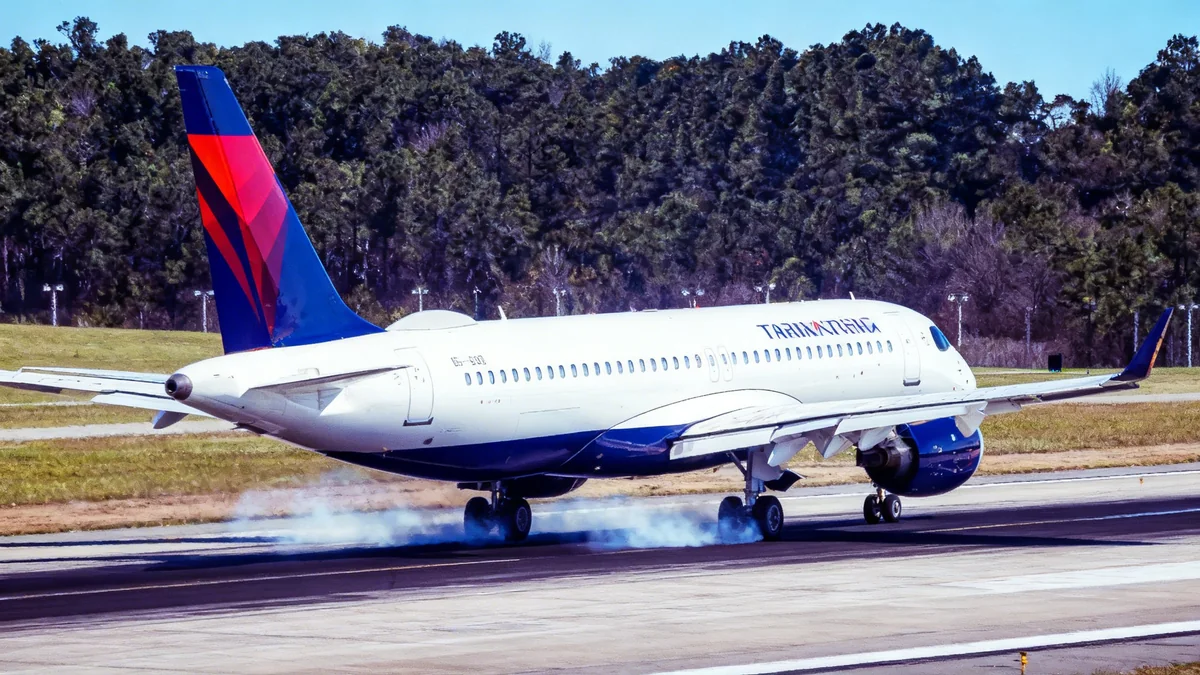South Western Railway (SWR) reports an estimated annual revenue loss of £45.5 million due to passengers traveling without valid tickets. This figure highlights a significant challenge for the rail operator, which serves a wide area including London, Surrey, Hampshire, Berkshire, Dorset, Devon, Somerset, and Wiltshire.
The data, made public following a Freedom of Information request, indicates that the overall rate of ticketless travel on SWR services is approximately 3.9%. This issue impacts the company's financial stability and its ability to invest in service improvements.
Key Takeaways
- SWR faces an annual revenue loss of £45.5 million from fare evasion.
- The rate of ticketless travel is 3.9%, a 40% reduction since 2017.
- SWR spent over £370,000 on passenger reimbursements for delays and cancellations.
- 7,293 trains ran with fewer carriages than planned in the last year.
- Concerns about accountability and contract transparency remain after renationalization.
Impact of Fare Evasion on Operations
The £45.5 million figure represents a substantial amount of lost income for South Western Railway. This revenue could otherwise be used for operational enhancements, infrastructure maintenance, or service upgrades. The company's revenue protection team is actively working to address this challenge.
An SWR spokesperson stated,
"Our revenue protection team is focused on effectively deterring fare evasion and bringing down the rate of ticketless travel."The company reports that efforts to combat fare evasion have been successful. Since 2017, ticketless travel has decreased by 40%, reaching its lowest level on record.
Quick Fact
Across the entire UK rail industry, fare evasion costs nearly £240 million annually. SWR's reported loss of £45.5 million contributes significantly to this national total.
Passenger Experience and Service Challenges
Beyond fare evasion, SWR faces other operational issues that affect passenger experience. The same Freedom of Information request revealed that the company spent more than £370,000 reimbursing passengers for hotels and taxis due to significant delays and cancellations. This demonstrates the financial cost associated with service disruptions.
In the past year, 7,293 trains were classified as "short-formed," meaning they operated with fewer carriages than planned. This often results from train faults or other operational problems, leading to overcrowded services and reduced passenger comfort.
Accountability Concerns Post-Renationalization
Background Information
South Western Railway became the first rail company to be renationalized by the Labour government in May. This change in ownership aimed to improve services and increase accountability. However, some groups believe more transparency is needed regarding the new operational structure.
Jeremy Varns, a representative of the SWR Watch travel group, which advocates for better rail services, believes that service quality has declined since the renationalization in May. He raised concerns about a lack of transparency regarding the new operational framework.
Mr. Varns commented,
"My primary concern is a lack of accountability. There's still no publicly accessible contract between the operator and government and Department for Transport."This highlights a call for greater clarity on how the railway is managed under its new governmental oversight.
SWR's Response to Service Issues
SWR acknowledged that it is currently operating under a transitional arrangement, which is subject to amendments. The company stated that a copy of the final Service Agreement will be published once it is finalized. This is intended to address concerns about contract transparency.
Regarding passenger welfare during disruptions, an SWR spokesperson affirmed,
"We have a duty of care to customers, and in times of significant disruption, we make every effort to ensure customers can complete their journeys."They added that, in line with National Rail Conditions of Travel, SWR is obligated to provide alternative travel options, such as refundable taxis, or overnight accommodation when reasonable.
Addressing Operational Reliability
- Short-formed trains: The company noted that 0.18% of services were short-formed over the last 12 months.
- New trains: SWR expects that the introduction of new trains will enhance the resilience of its current fleet, aiming to reduce instances of short-formed services and improve overall reliability.
Mr. Varns also pointed out that "station skipping continues to occur too often." This refers to trains bypassing scheduled stops, which can further inconvenience passengers who have already experienced delays. Improving operational consistency remains a key area for SWR.
The ongoing efforts to reduce fare evasion, manage disruption costs, and enhance service reliability are central to SWR's operations. The balance between financial recovery and passenger satisfaction remains a critical focus for the renationalized rail operator.





